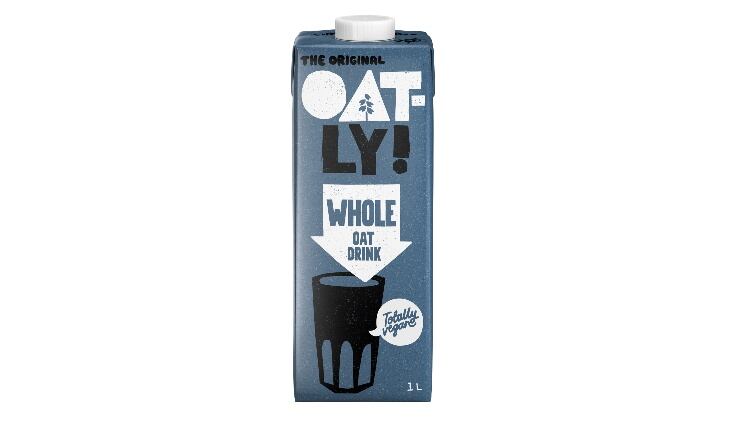Plant-based meat alternatives have faced serious backlash in terms of volume growth and consumer perception, bringing the optimistic growth forecasts to a ‘rigorous halt’ last year – according to IRI, US dollar retail sales of plant-based meat alternatives in the US dropped 9% in the first quarter of 2023, following an already lacklustre 2022 with volume declines of about 6%.
“On the back of overly optimistic market growth expectations and seemingly abundantly available funding, much has been invested in setting up new production capacity, launching new brands and expanding shelf meterage in supermarkets. In retrospect, perhaps too much,” said Rabobank senior analysts Sebastiaan Schreijen
“Some meat processors that set up dedicated plant-based meat alternatives production facilities earlier have brought these production lines back in-house and are rationalizing their offering.
“Pure play plant-based companies like Meatless Farm and Plant & Bean did not have the luxury of an adjacent cash cow business and had to wind down operations. Market conditions in mainland Europe appear to be not as harsh as in the UK, but there is anecdotal evidence that manufacturers there are reassessing capacity needs and that supermarket chains may consider reducing shelf space for plant-based meat alternatives.”
Despite the “air being taken out of the inflated anticipations”, Rabobank still believed the main drivers behind plant-based products remained strong.
“We expect growing attention on food as a health driver coupled with perceived sustainability and animal welfare benefits, increasing concerns about the level of processing of food and a refreshed appeal for convenience-at-home will gradually boost the choice for plant-based products. But not just any product,” said Schreijen.
To this end, Rabobank laid out five key considerations for how plant-based meat manufacturers can revive the category by more closely aligning product development and promotion strategies with evolving consumer preferences.
Where is the plant in plant-based?
As manufacturers strived to make their products more closely mimic meat, they have been forced to stray even further into the realm of ultra-processed foods. The desire to achieve a meaty taste, texture and shape has led to the removal of the plant’s physical components and nutrients and added ‘undesirable’ ingredients that don’t relate to plants.
The stigma surrounding ultra-processed foods has led to some consumers to turn their backs on these meat replacement products, due to the category’s association with less healthy foods.
Plant-based meat alternatives haven’t focus on plants’ nutritional benefits
The focus on the disadvantages of meat has meant producers have missed the opportunity to highlight the intrinsic beneficial properties of plants.
Growing attention for dietary fibre, gut health and pre/pro/post-biotics could benefit plants in all their forms – vegetables, whole grains, fruits, roots, nuts and leaves. Plant-based players will benefit from talking more about the positive attributes of plants and bringing more of that to their final products.
Sustainability won’t do the job alone
Plant-based meat alternatives have costed on the good will created by their sustainability claims. Science-based evidence and public perception that plant proteins consume fewer resources and release fewer greenhouse gases has informed the direction for their marketing.
However, consumers are not easily persuaded with sustainability claims alone. Taste, price, clean labels, healthiness and versatility are required to convince consumers.
The fallacy of price parity
The inflated forecasts for meat alternatives had been driven by the belief that volumes would be boosted and economies of scale would kick in once price parity was reached with animal protein products. This has not come to pass.
For a variety of reasons, the shelf prices of meat alternatives stayed behind price developments in meat products. That proves that if a product is not up to par on taste and quality, price alone cannot win consumers over.
If producers really wanted to scale up their business, they should focus on the everyday solutions meat-alternatives can offer. Focus less on headline grabbing innovations and focus more on replacing ground meat in a frozen lasagne or ready meal with a plant-based alternative, a much easier task than trying to disrupt the streak and burger market.
A deeper look at the plant-based chain
Besides the undesirability of ultra-processed foods by consumers, the manufacturing process also creates an extra level of complexity and costs.
Improvements early in the chain could generate savings, boost research and development outcomes, reduce the need for additional chemical ingredients and overall processing (with energy and inputs savings), and increase the sustainability profile of plant-based meat alternatives even further.
“Looking back over the past ten years, plant-based meat alternatives have successfully established a base for further growth,” Schreijen added. “Just as one should not have expected the tremendous market growth through 2020 to last forever, today’s headwinds will not last for the coming 10 to 15 years either.
“Having said that, the current market conditions should be viewed as a wakeup call for players to reevaluate their strategies. Changing consumer behaviour takes time and a lot of effort. Purely mimicking meat to lure flexitarians to meat alternatives has failed to take into account many other consumer requirements, not in the least taste.”
Schreijen tasked plant-based meat alternative producers to offer tasty products made from clean ingredients that are convenient, flexible to use in different recipes, reasonably priced and have the additional benefit of being good for the planet and animals.
“This will require investments in innovation, new products, ingredients, and manufacturing processes and it will take time and money,” he concluded. “Not all PBMA players will have this time, let alone the money. It is going to be a bumpy ride.





